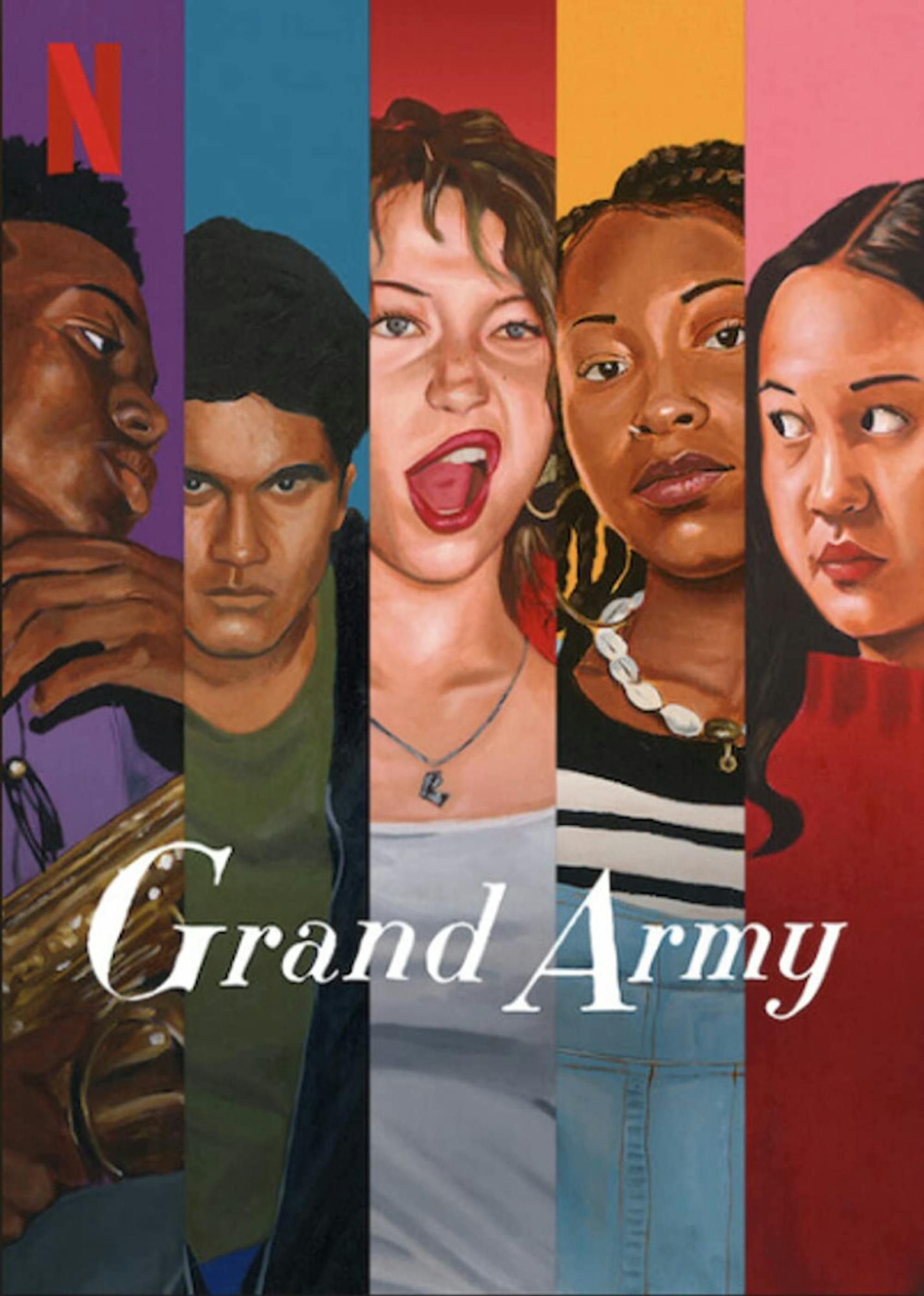Content warning: This article discusses trauma, sexual assault, homophobia and racism.
From "The O.C." (2003–07) to "Gossip Girl" (2007–12), "Dawson’s Creek" (1998–2003) to "Friday Night Lights" (2006–11), TV shows chronicling the highs, lows and sheer melodrama of high school are nothing we haven’t seen before. In recent years, the wild success of HBO’s "Euphoria" (2019–) –– the Zendaya-led teen drama that featured frank depictions of mental health, sex and the importance of body glitter –– has precipitated a wave of new titles offering a diversity of storytelling and a desire to dig deeper.
Such is the case with Netflix’s new original show "Grand Army" (2020). The series, centered around a Brooklyn high school of the same name, follows a group of teenagers as they navigate not only the usual coming-of-age fare, but also an intense traumatic experience after a bomb is set off outside of their school.
Helmed by showrunner Katie Cappellio, "Grand Army" is based on her 2013 stage show "Slut: The Play," which incorporated personal stories from teenage members of her all-female theater troupe to paint an innovative and heartbreaking portrait of sexual assault. Although the play –– called “truthful, raw, and immediate” by Gloria Steinem –– followed 16-year-old Joey del Marco (played in "Grand Army" by the captivatingly chaotic Odessa A’zion), "Grand Army" expands beyond this story into many other threads, following five teenagers as they cope with the aftermath of the bombing and their own comings of age.
"Grand Army" does a fairly seamless job of weaving these personal stories with larger themes of systemic injustice. One story follows Sid (Amir Bageria), an Indian American teenager struggling to come to terms with both his own sexuality and the onslaught of xenophobia brought on by the recent terrorist attack. Another follows Dom (Odley Jean), whose crush on charismatic Black Student Union president John Ellis (Alphonso Romero Jones II) is complicated by her family’s dependence on her for financial support.
Though at times the activism storylines can feel a bit heavy-handed, like when Joey distributes “free the nipple” T-shirts to confront a teacher who made sexist comments, more often than not this blend of the personal and the political hits home. When Jay (Maliq Johnson) and Owen (Jaden Jordan), two student musicians, are suspended for accidentally losing Dom’s wallet, Jay’s realization that he might be losing his best friend to the school-to-prison pipeline is nothing short of heartbreaking.
Despite fighting against very real systemic injustice –– homophobia, racism, sexism and the recent terrorist attack outside their school, for starters –– the teenagers of "Grand Army" are by no means perfect activists. Though Joey fights diligently against slut-shaming throughout the series, it is her own testimony that lands Jay and Owen in trouble in the first place when Dom’s wallet is lost. Leila (Amalia Yoo), a freshman grappling with the perils of hookup culture and her complex identity as a Chinese girl with Jewish adoptive parents, finds herself not believing Joey when the latter goes public with her story of sexual assault. Many other television shows might have championed Joey’s fight against slut-shaming without underlining just how white feminist it really it is.
In this way, "Grand Army’s" strongest asset is the shades of moral complexity it lends its teenage characters; just calling yourself ‘woke’ doesn’t mean you actually are. They are learning how to stand up for themselves and one another, even though they don’t get it right every time.






